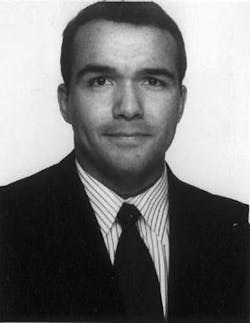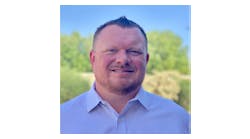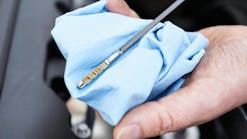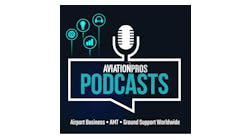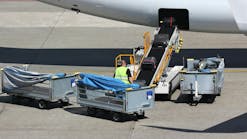WASHINGTON — David M. Hernandez is a senior associate with the Washington law firm of Pillsbury Winthrop Shaw Pittman, L.L.P. and a former prosecutor for the Federal Aviation Administration. Hernandez recently sat with AIRPORT BUSINESS to discuss a broad range of issues; yet, the topic of the TSA’s opt-out program for airports dominated. Following is an edited transcript of that discussion.
Hernandez represents aerospace companies, airlines, airports, charter firms, and other interests on a variety of topics, including compliance, enforcement, certification, hazmat, zoning, and corporate and finance matters. He frequently advises clients on compliance matters that fall under the regulatory realm of FAA, TSA, SEC, IRS, and DOT.
AIRPORT BUSINESS: When it comes to airports, what type of issues are you typically dealing with?
Hernandez: It’s kind of died down. Initially, it was the funding for the bomb detection systems; trying to allocate enough space and negotiating with TSA [Transportation Security Administration] on how to place bomb detection equipment. The airports have ceded a lot of that authority to TSA, not that they had much choice.
Other than that, the next big thing is going to be this opt-out program. In my opinion, the TSA has done an awful job getting people to do opt-out. It’s kind of a schizophrenic role they’re having. I guess it’s a dual issue in the way the Republicans and Democrats are viewing it. The Democrats really don’t want any privatization and Republicans do.
The airports aren’t going to do it because they still have the liability and won’t have any better resources or control over the process. So, why do they want to do this? We have a bunch of clients who are ready to start doing it. But they have to at least give the airports the same protection that the government has now because they’re essentially filling the same role.
AB: Should we assume those clients are airports?
Hernandez: Actually, they’re security companies. It’s a shame; they’re sitting on the sidelines with a lot of new technology.
There needs to be some incentive out there for the airports to try something different.
AB: Control seems to be one of the biggest issues with opt-out.
Hernandez: Yes. There are ways to work it so it’s more of a partnership. Right now, the FSDs [federal security directors] have ultimate control over the process; what’s lacking is airport input.
Sure, the FSDs know the security aspects but the airports are the ones who best know their airports, their passengers, their concessionaires, their issues.
It’s going to be a tough sell but I don’t think it’s an impossible sell. If the airport has a specific problem with an FSD or an inability to flow passengers, then the airport [should] have some type of appeal process to skip the FSD and go to headquarters and have an ombudsman who they can discuss issues with.
AB: What makes you say that opt-out is “the next big thing?”
Hernandez: I think they, the TSA and Congress, are going to realize that the money just isn’t there. They have to incentivize it in some way to get more airports to join.
Something has to give, and I think the first thing will be the liability, something that relieves the airports and security companies from liability, essentially putting them into a government contractor’s position. It has to because there is so much data there from the pilot program that suggests they can do it more efficiently. I think a big problem with the TSA now, but they don’t want to admit it, is they’ve probably doubled their human relations attorneys just dealing with the HR issues. They didn’t expect the huge problems they’re having. I think the private sector is more efficient dealing with those HR issues.
AB: I recently heard some Congressional staffers suggest that by putting an in-line screening system in place at an airport you pretty much eliminate two screener positions and the system pays for itself within the first year. Have we gotten to the point that this instant bureaucracy we’ve created is proving to be an obstacle to getting this accomplished?
Hernandez: I think the biggest thing, without pointing fingers, is that when this all came about in 2001, the total cost was grossly underestimated. Projections were based on pre-9/11 numbers when the airlines were responsible for screening and were paying dirt wages.
AB: In the final analysis, it would seem that you think private screening is ultimately the direction this thing is headed.
Hernandez: We have to; there are just too many inefficiencies.
You may see gradual changes; perhaps you’ll see a quarter of the airports switching over to a private security model and, once efficiencies are realized there, it will expand.
Run it like a business instead of a bureaucracy.
I wouldn’t be surprised if you were to see Lockheed Martin and Covenant just come roaring down and overnight taking it over at airports. That’s going to be a huge revenue-generating stream. Competition, in its pure form, is good.
